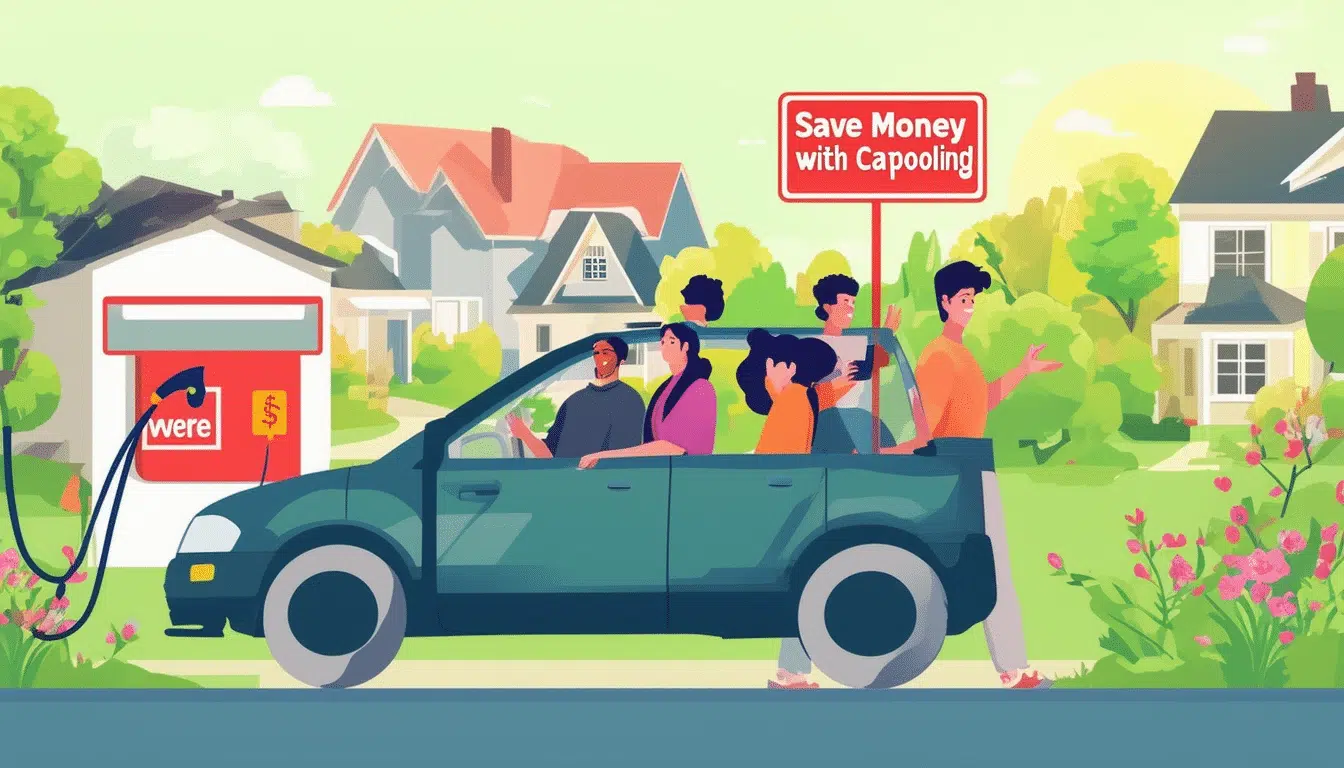Benefits of carpooling to reduce fuel costs

Carpooling, or car sharing, has become an effective solution for those looking to optimize their fuel expenses. By sharing the vehicle with others, participants can significantly reduce transportation costs. This practice not only allows for the division of expenses but also helps to decrease pollution and traffic in cities. As more people adopt this form of mobility, the economic and environmental benefits become increasingly evident, making it an attractive and sustainable option for the future of transportation.
Carpooling, or car sharing, presents itself as an innovative and sustainable alternative in transportation. This practice not only contributes to cost reduction in fuel but also offers multiple benefits that positively impact both users and the environment. Below, the advantages of choosing carpooling are explored in detail.
Significant savings on fuel
One of the greatest advantages of carpooling is the savings on fuel. By sharing the ride with others, participants can decrease gasoline expenses and optimize the usage of each vehicle. These savings can reach up to 75%, which represents a considerable amount of money in the monthly transportation budget.
Reduced demand for parking
Carpooling also contributes to a reduced demand for parking in urban areas. By reducing the number of vehicles on the streets, it facilitates the availability of parking space and minimizes traffic problems. This optimization in the use of public space is a notable benefit, especially in congested cities.
Lower maintenance costs
Sharing a car not only impacts fuel costs, but it can also reduce maintenance costs. Less use of the vehicle means that it will wear less, which ultimately translates into lower expenses for repairs and general maintenance. Additionally, users can split possible tolls and other transportation-related costs.
Positive impact on sustainability
From an environmental perspective, carpooling plays a crucial role in the reduction of carbon emissions. By decreasing the number of circulating vehicles, air pollution is lowered and it contributes to the decarbonization of transportation. This practice is aligned with the sustainability and social responsibility goals that many companies and communities seek to achieve.
Comfort and better time management
Participating in a carpooling system can also result in greater comfort for users. Organizing trips together allows passengers to coordinate departure times and routes, optimizing travel time. This not only makes traveling in a group more enjoyable but also improves the efficiency of personal time usage.
Promotion of social relationships
Carpooling is not limited to economic and environmental aspects, but also fosters social relationships among participants. Sharing the ride leads to the creation of bonds and connections that can enrich everyday experiences, facilitating interactions beyond the mere trip.
In summary, carpooling stands out for its multiple benefits, including savings on fuel, lower maintenance and pollution-related costs, and improved urban quality of life. For more information on how to enhance urban planning and its impact on reducing fuel costs, you can explore more on how urban planning can help reduce fuel expenses. It is also interesting to consider how this transportation style can influence fuel savings in your pocket and observe the keys to reducing gasoline expenses through the use of efficient alternatives. Start considering more efficient and economical transportation options and enjoy the multiple benefits of carpooling.
Carpooling, also known as car sharing, appears as a smart and economical option for those looking to minimize their commuting costs. By sharing rides, users can split fuel expenses, resulting in such significant savings that it can reach up to 75% compared to using an individual vehicle. This practice not only improves personal finances but also optimizes the use of available resources.
In addition to the obvious reduction in fuel expenses, carpooling contributes to a lower demand for parking. By sharing routes, the number of cars on the road decreases, markedly reducing traffic and the need to find parking spaces. This benefits not only drivers but also improves air quality and the urban environment by reducing pollutants.
On the other hand, sharing a car promotes sustainability. By decreasing the number of vehicles in circulation, it reduces the emission of polluting gases, contributing to a cleaner environment and the fight against climate change. It also fosters a sense of community among participants, who can meet others and establish social ties, making the travel experience more enjoyable and interesting.
Finally, the use of collaborative mobility platforms facilitates the organization of trips, allowing better coordination and communication among users. This not only simplifies the carpooling experience but also ensures a higher level of comfort and flexibility in planning commutes. In summary, carpooling presents itself as a powerful tool to reduce fuel costs and contribute to a more sustainable future in transportation.




